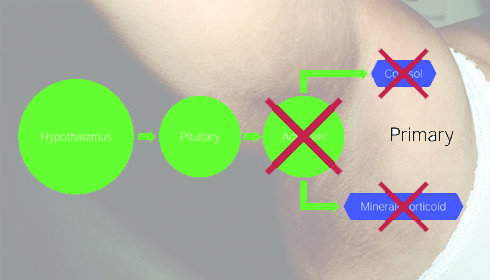
Addison's Disease
Addison's disease, also known as adrenal insufficiency, is a rare and chronic disorder that affects the adrenal glands. These glands, located on top of each kidney, produce essential hormones like cortisol and aldosterone. In Addison's disease, the adrenal glands fail to produce an adequate amount of these hormones, leading to various physiological imbalances.
Why Does Addison's Disease Occur?
Addison's disease usually develops when the immune system mistakenly attacks and damages the adrenal glands, a condition known as autoimmune adrenalitis. Other causes may include infections, certain medications, or bleeding into the adrenal glands. The dysfunction of the adrenal glands results in insufficient hormone production, disrupting the body's ability to respond to stress, regulate blood pressure, and maintain proper electrolyte balance.
How Does Addison's Disease Affect the Body?
The hormonal deficiencies caused by Addison's disease have widespread effects on the body. Cortisol, often referred to as the "stress hormone," plays a crucial role in regulating metabolism, immune response, and the body's response to stress. Aldosterone helps balance salt and water levels, contributing to blood pressure regulation. In Addison's disease, the lack of these hormones can lead to fatigue, weakness, weight loss, low blood pressure, and electrolyte imbalances.
Symptoms of Addison's Disease:
Treatment of Addison's Disease:
The primary treatment for Addison's disease involves replacing the deficient hormones. Patients are typically prescribed oral corticosteroids (such as hydrocortisone) and mineralocorticoids (like fludrocortisone) to compensate for the lack of cortisol and aldosterone. The dosage is adjusted based on the individual's needs, and regular monitoring is crucial to prevent complications. In times of illness or stress, additional medication adjustments may be necessary. Education on stress management and the importance of timely medication is essential for individuals with Addison's disease to maintain a good quality of life.